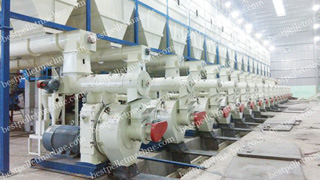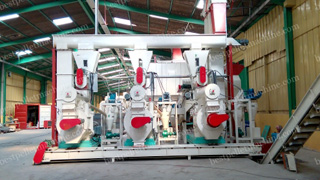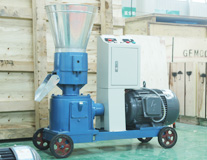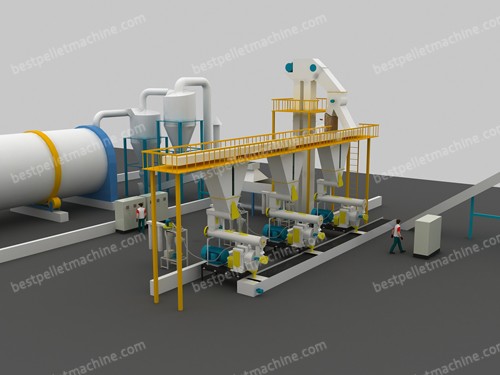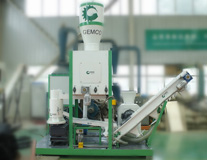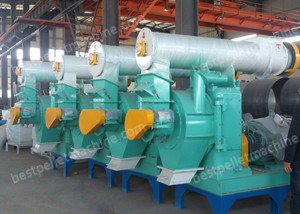The importance of cooling system in pelletizing process
The biomass pelletizing process always accompanies high heat generated by high speed friction and produces excess vapor, which will result in grease desaturation and loss of roller bearing. If the machine operates in an oil lack and high pressure state with high-speed, the bearings will be easily damaged within one day or even as fast as 2 hours.
 According to the actual situation, our company has opened air circulation holes in the pelletization chamber, and set a suction opening outside the pelletization chamber to use the indoor air to reduce the chamber temperature to a good state for pelletization, while excluding excess vapor to prevent the high material moisture causing deformation of pellets. This is another patent of our company: the air circulation cooling device in granulation chamber.
According to the actual situation, our company has opened air circulation holes in the pelletization chamber, and set a suction opening outside the pelletization chamber to use the indoor air to reduce the chamber temperature to a good state for pelletization, while excluding excess vapor to prevent the high material moisture causing deformation of pellets. This is another patent of our company: the air circulation cooling device in granulation chamber.
At the same time, we adopt the extreme pressure heat resisting engine oil instead of traditional high-temperature grease to lubricate the bearings, and apply the oil pump to circulate the engine oil in the bearings, thereby ensuring the constant lubrication of the bearings, and greatly improving its service life from originally a week to at least 50 working days.
Improvement in pelleting process
In early biomass pelleting process, there were only simple equipments as belt conveyor. Most of the feeding materials were manually conveyed, so there was much dust in the pelleting site, which can only be called small workshop production. Based on the original production process, our company add material separator, feeding and dedusting devices in important procedures, and add checkpoints in core parts to greatly increase mechanization level and reduce labor. Take the 4 ton/hour pellet production line for example, every shift only needs 6-7 workers. And the factory environment is greatly improved. Some of our sample pellets production lines are often visited by customers and governments.
Biomass pellet production training
Some of the existing biomass pellet machine manufacturers in China do have good equipments, but they are lack of practical pelleting experience. As a result, they are not able to offer professional pellet mill plans. Different from them, our company began much earlier in designing complete plants, therefore, we have more experience than others. We have helped our customers build biomass pellet plants in several countries and trained their staff to rightly operate the plants. All these plants have obtained good results.
If you are also looking for a biomass pellet production plant design, you can contact us at any time.
By Shirley Wang



